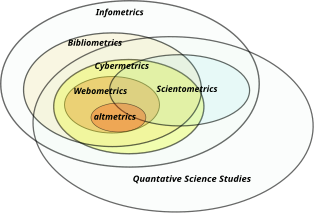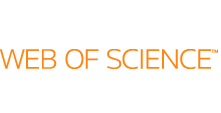Information retrieval (IR) in computing and information science is the process of obtaining information system resources that are relevant to an information need from a collection of those resources. Searches can be based on full-text or other content-based indexing. Information retrieval is the science of searching for information in a document, searching for documents themselves, and also searching for the metadata that describes data, and for databases of texts, images or sounds.

The Universal Decimal Classification (UDC) is a bibliographic and library classification representing the systematic arrangement of all branches of human knowledge organized as a coherent system in which knowledge fields are related and inter-linked. The UDC is an analytico-synthetic and faceted classification system featuring detailed vocabulary and syntax that enables powerful content indexing and information retrieval in large collections. Since 1991, the UDC has been owned and managed by the UDC Consortium, a non-profit international association of publishers with headquarters in The Hague, Netherlands.

Information science is an academic field which is primarily concerned with analysis, collection, classification, manipulation, storage, retrieval, movement, dissemination, and protection of information. Practitioners within and outside the field study the application and the usage of knowledge in organizations in addition to the interaction between people, organizations, and any existing information systems with the aim of creating, replacing, improving, or understanding the information systems.
A citation index is a kind of bibliographic index, an index of citations between publications, allowing the user to easily establish which later documents cite which earlier documents. A form of citation index is first found in 12th-century Hebrew religious literature. Legal citation indexes are found in the 18th century and were made popular by citators such as Shepard's Citations (1873). In 1961, Eugene Garfield's Institute for Scientific Information (ISI) introduced the first citation index for papers published in academic journals, first the Science Citation Index (SCI), and later the Social Sciences Citation Index (SSCI) and the Arts and Humanities Citation Index (AHCI). American Chemical Society converted its printed Chemical Abstract Service into internet-accessible SciFinder in 2008. The first automated citation indexing was done by CiteSeer in 1997 and was patented. Other sources for such data include Google Scholar, Microsoft Academic, Elsevier's Scopus, and the National Institutes of Health's iCite.
Document classification or document categorization is a problem in library science, information science and computer science. The task is to assign a document to one or more classes or categories. This may be done "manually" or algorithmically. The intellectual classification of documents has mostly been the province of library science, while the algorithmic classification of documents is mainly in information science and computer science. The problems are overlapping, however, and there is therefore interdisciplinary research on document classification.
The Journal of the Association for Information Science and Technology is a monthly peer-reviewed academic journal covering all aspects of information science published by Wiley-Blackwell on behalf of the Association for Information Science and Technology. The journal publishes original research and rapid communications, as well as book reviews and announcements of the association. Occasional special issues appear with contents focused on a single topic area.

The Journal of Personality and Social Psychology is a monthly peer-reviewed scientific journal published by the American Psychological Association that was established in 1965. It covers the fields of social and personality psychology. The editors-in-chief are Shinobu Kitayama, Colin Wayne Leach, and Richard E. Lucas.
Knowledge organization (KO), organization of knowledge, organization of information, or information organization, is an intellectual discipline concerned with activities such as document description, indexing, and classification that serve to provide systems of representation and order for knowledge and information objects. According to The Organization of Information by Joudrey and Taylor, information organization:
examines the activities carried out and tools used by people who work in places that accumulate information resources for the use of humankind, both immediately and for posterity. It discusses the processes that are in place to make resources findable, whether someone is searching for a single known item or is browsing through hundreds of resources just hoping to discover something useful. Information organization supports a myriad of information-seeking scenarios.
Inspec is a major indexing database of scientific and technical literature, published by the Institution of Engineering and Technology (IET), and formerly by the Institution of Electrical Engineers (IEE), one of the IET's forerunners.

The International Encyclopedia of the Social & Behavioral Sciences, originally edited by Neil J. Smelser and Paul B. Baltes, is a 26-volume work published by Elsevier. It has some 4,000 signed articles, and includes 150 biographical entries, 122,400 entries, and an extensive hierarchical subject index. It is also available in online editions. Contemporary Psychology described the work as "the largest corpus of knowledge about the social and behavioral sciences in existence." It was first published in 2001, with a 2nd edition published in 2015. The second edition is edited by James D. Wright.
Subject indexing is the act of describing or classifying a document by index terms, keywords, or other symbols in order to indicate what different documents are about, to summarize their contents or to increase findability. In other words, it is about identifying and describing the subject of documents. Indexes are constructed, separately, on three distinct levels: terms in a document such as a book; objects in a collection such as a library; and documents within a field of knowledge.

The Web of Science is a paid-access platform that provides access to multiple databases that provide reference and citation data from academic journals, conference proceedings, and other documents in various academic disciplines. Until 1997, it was originally produced by the Institute for Scientific Information. It is currently owned by Clarivate.

Journal of Chemical Theory and Computation is a peer-reviewed scientific journal, established in 2005 by the American Chemical Society. It is indexed in Chemical Abstracts Service (CAS), Scopus, British Library, and Web of Science. The current editor-in-chief is Laura Gagliardi. Currently as of the year 2022, JCTC has 18 volumes.
The International Society for Knowledge Organization, or ISKO, is a professional association for scholars of knowledge organization, knowledge structures, classification studies, and information organization and structure.

Computational and Mathematical Organization Theory is a quarterly double-blind peer-reviewed scientific journal covering the field of organization theory. The journal is published by Springer Science+Business Media. It was established in 1995 and initially published by Kluwer. The founding editors-in-chief were William A. Wallace and Kathleen Carley. Carley has continued as co-editor-in-chief, a role she currently shares with Terrill L. Frantz.
In library and information science documents are classified and searched by subject – as well as by other attributes such as author, genre and document type. This makes "subject" a fundamental term in this field. Library and information specialists assign subject labels to documents to make them findable. There are many ways to do this and in general there is not always consensus about which subject should be assigned to a given document. To optimize subject indexing and searching, we need to have a deeper understanding of what a subject is. The question: "what is to be understood by the statement 'document A belongs to subject category X'?" has been debated in the field for more than 100 years
Taxonomy is the practice and science of categorization or classification.

Theory & Society is a bimonthly peer-reviewed academic journal covering theoretical analyses of social processes and phenomena. It was established by Alvin Gouldner in 1974. It is published by Springer Science+Business Media and the editor-in-chief is Janet Gouldner. According to the Journal Citation Reports, the journal has a 2018 impact factor of 1.9. On average, it takes the editorial staff two years before they make a decision whether or not to accept an article.

Ingetraut Dahlberg was a German information scientist and philosopher who developed the universal Information Coding Classification covering some 6,500 subject fields. Her career spanned various roles in research, teaching, editing, and publishing. Dahlberg founded the journal International Classification as well as both the scientific Society for Classification and International Society for Knowledge Organization.
The Information Coding Classification (ICC) is a classification system covering almost all extant 6500 knowledge fields. Its conceptualization goes beyond the scope of the well known library classification systems, such as Dewey Decimal Classification (DDC), Universal Decimal Classification (UDC), and Library of Congress Classification (LCC), by extending also to knowledge systems that so far have not afforded to classify literature. ICC actually presents a flexible universal ordering system for both literature and other kinds of information, set out as knowledge fields. From a methodological point of view, ICC differs from the above-mentioned systems along the following three lines:
- Its main classes are not based on disciplines but on nine live stages of development, so-called ontical levels.
- It breaks them roughly down into hierarchical steps by further nine categories which makes decimal number coding possible.
- The contents of a knowledge field is earmarked via a digital position scheme, which makes the first hierarchical step refer to the nine ontical levels, and the second hierarchical step refer to nine functionally ordered form categories.









